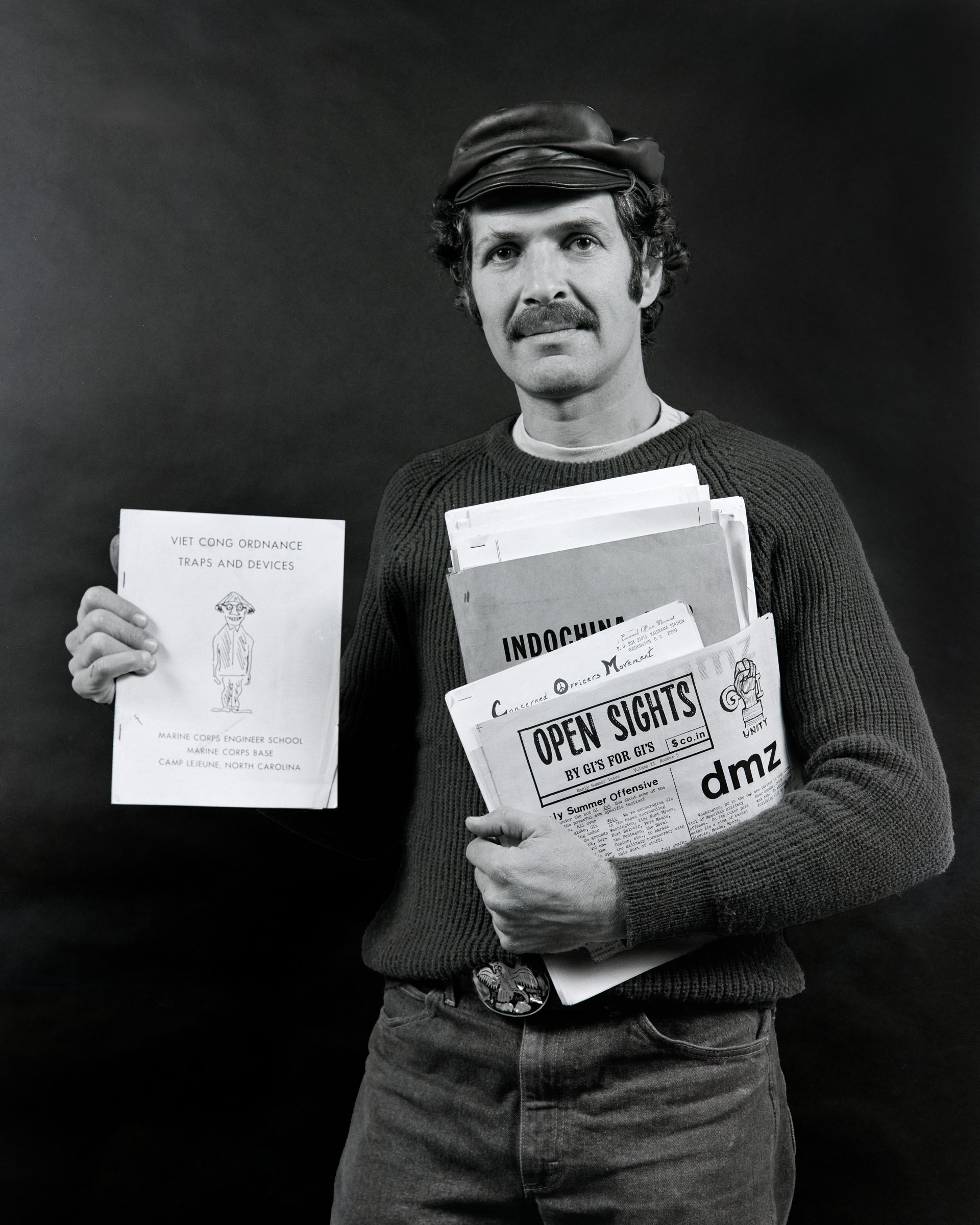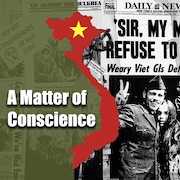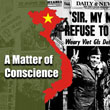
I was part of the first parade, the only parade, Vietnam veterans ever got during the war. That was back when I was stationed at Camp Pendleton in the spring of ’69. The 27th Marines came home, but really they didn’t come home because everyone from the 27th Marines was transferred out of the 27th Marines about two weeks before the colors were supposed to come home. Others who had less than a week or two on their tour were suddenly transferred into the 27th Marines and sent home. But the propaganda was this was the first unit coming home and they had this huge parade in San Diego. They bused us all out of Camp Pendleton and made us carry our weapons and steelpots and march down the street. There were thousands and thousands of us there, all of Camp Pendleton was marching in that parade. The streets were packed with people, and people were throwing confetti out the windows and everyone was screaming “Welcome home boys, we love you, welcome home!” You got goose bumps dropping down your whole body because you knew you were part of a farce. The next day the paper read, “Welcome Home Parade for the 27th Marines.” I was in the 27th Marines for a day, as was everyone else in that parade. The 27th Marines never came home.
When they invaded Cambodia it was just horrendous. I was in Washington, D.C. at the time; a career Marine officer going to school to learn how to do underwater maps and charts for landings all over the world. I was outraged the invasion had taken place. It made me realize the stupid war was far from ending. I read about some Navy officers who were speaking out against the war and I tracked them down. I was so happy to find these guys because I thought I was alone; you feel so isolated when you’re in the military. There were about ten or twelve of us in the beginning. We got together another six or seven in the next week, and the Concerned Officers Movement was born. We didn’t do anything really to organize, it was more like a rap group. It was more like, wow, we’d found each other. It was just good to talk about what the hell was happening, how the war sucked and what we could do about it. The next thing we knew people all over the country were calling us asking how they could start a chapter, the thing just organized itself. We soon had hundreds of officers from all branches of the service, all over the country involved.
We were perceived as a real danger, because, as officers we were the command structure and many of us had high security access. We didn’t think we were doing anything wrong; we figured that’s what we fought in Vietnam for — our constitutional rights. Our right to speak our mind. Everybody identified with the Concerned Officers Movement had funny things start happening to them: you’d be transferred, you’d be offered an early discharge, or suddenly your fitness report would go from excellent to unsatisfactory. The reaction from the Marine Corps was so out of line that I would have to say the Corps radicalized me more than the demonstrators out in the streets did.
Archived Material
No posts
Podcasts
No posts


